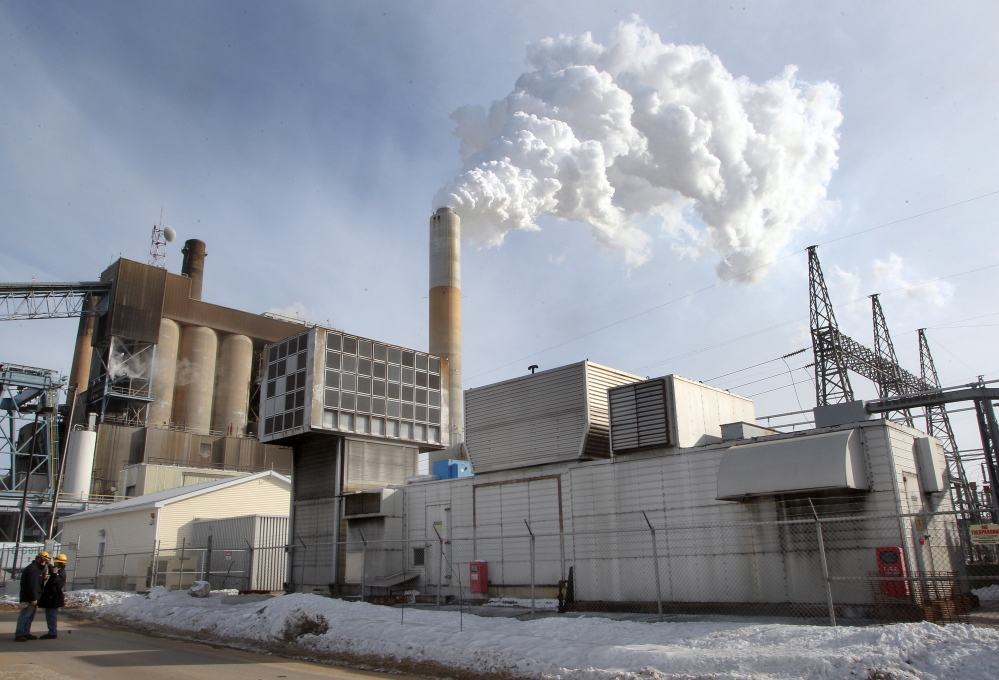HARTFORD, Conn. – The retirement of several power plants in New England is reducing power supply and driving up prices, the region’s electric grid operator warned Wednesday.
A regional auction to buy power for 2017 and 2018 in so-called capacity markets – comparable to an insurance policy that ensures power is available in the future – ended with a shortfall in megawatts for electricity used by businesses and homes, ISO-New England said.
In the auction that ended Monday, ISO secured a commitment of 33,700 megawatts, off from 33,855 megawatts of capacity required. One megawatt powers about 1,000 homes.
The deficit in megawatts available is a first for New England, which has had a surplus in megawatt capacity since the forward capacity market was established in 2006.
“The region abruptly went from a capacity surplus and low prices in previous auctions to a capacity shortfall and relatively high prices,” said Gordon van Welie, ISO New England’s president and chief executive officer.
Major oil, coal and nuclear power plants to be retired by June 1, 2017, include Brayton Point and Salem Harbor in Massachusetts and Vermont Yankee in Vermont. NRG Energy Inc. shut oil-fired Norwalk Harbor in Connecticut last year. The plants account for nearly 10 percent of New England’s capacity. Another 600 megawatts will go offline as other retirements take effect, ISO said.
Auctions in the next three years are expected to close the gap between demand and supply, ISO said. But the “slim capacity margin” and resulting higher prices are a clear signal that New England needs more power generation and more efforts reducing demand, van Welie said.
New England will pay much more for the capacity market, one of three energy markets in the region. The cost for 2017-2018 is about $3.05 billion, compared with about $1.06 billion in 2013 and $1.77 billion in 2009.
It’s too early to know what the impact will be on customers, ISO spokeswoman Marcia Blomberg said. The retail price will rise, but it’s a small share of the total wholesale portion of the retail bill, she said.
Seth Kaplan, vice president for policy and climate advocacy at the Conservation Law Foundation, a Boston environmental group, said aging power plants are part of a “zombie fleet.”
With the rising use of natural gas, developers are proposing more gas-fired plants, he said. Wind, hydropower and solar projects also are key components of diverse energy markets, he said.
The deficit in available megawatts and price spike are “signals to the financial community and policymakers. … You need to build some stuff,” Kaplan said.
Entergy Corp. will shut the Vermont Yankee Nuclear Power Station this year, ending a battle with the state since 2010 when the Vermont Senate voted against a measure that would have authorized granting Vermont Yankee a permit to operate for an additional 20 years. Lawmakers were concerned about the plant’s safety, age and other issues.
Coal’s decreasing competitiveness prompted Dominion in 2011 to ask for permission to shut the 60-year-old coal- and oil-fired Salem Harbor Power Station. And the coal-fired Brayton Point Power Station in Massachusetts – cited as a heavy polluter – is set to be retired in May 2017.
NRG shut the Connecticut plant last June, saying it was not economic to keep it running.
Send questions/comments to the editors.



Success. Please wait for the page to reload. If the page does not reload within 5 seconds, please refresh the page.
Enter your email and password to access comments.
Hi, to comment on stories you must . This profile is in addition to your subscription and website login.
Already have a commenting profile? .
Invalid username/password.
Please check your email to confirm and complete your registration.
Only subscribers are eligible to post comments. Please subscribe or login first for digital access. Here’s why.
Use the form below to reset your password. When you've submitted your account email, we will send an email with a reset code.